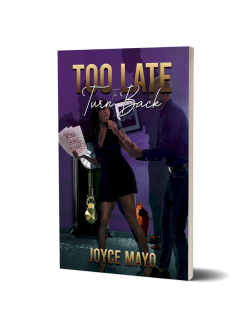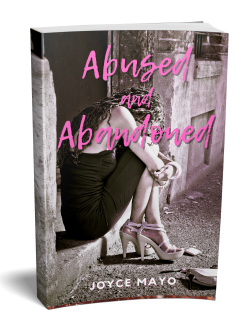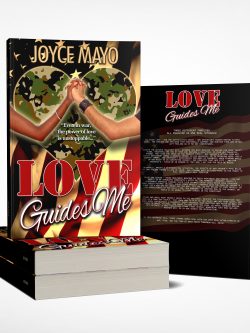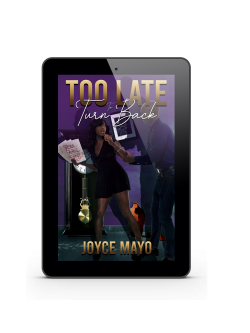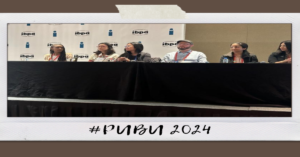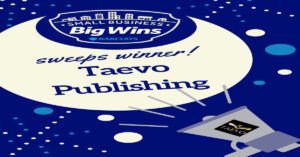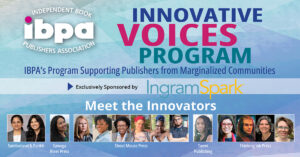As you continue on this exciting path of publishing, you’ll find that if you network properly, you’re going to have the pleasure of finding yourself meeting and being surrounded by slews of authors, professional experts, and inspirational people who have overcome amazing odds.
When I was actively publishing other authors, much of my networking was done in person, and the moment people found out they were in the presence of a publisher, I would hear the same thing:
THEM: What do you do for a living?
ME: I run my own publishing house, Taevo Publishing.
THEM: You’re a publisher? Wow! Man, I have been wanting to write and publish a book for a long time… (pause for my reaction)
ME: Awesome. That’s what’s up. I hope you get it done. When you do, check out my website for some tips and tricks that’ll help you get it published, because the process can be long and frustrating at times. Oh, and pick up a copy of the Writer’s Market – it’s a great tool for newbies looking to break into publishing.
THEM: I want you to publish my book, though! I have a publisher right in front of me now!
ME: (smiling politely) Unfortunately, it doesn’t work that way. There is a professional submission process to undergo, depending on which publishing house you’re submitting to. You’ll probably want to get a literary agent first if you’re looking for a traditional publisher, too.
If you say this to a publisher, 9 times out of 10 at this point they’re thinking, ‘This person is waaaaay too green for our company to publish. We already have limited funds and are working on a tight budget. Publishing their book would entail a lot of extra unnecessary work, since they have not only don’t have an agent, but they also don’t have a clue about the publishing process. I’d have to explain everything multiple times as we go along. That would delay the entire project, and would be a greater cost risk in the long run.”
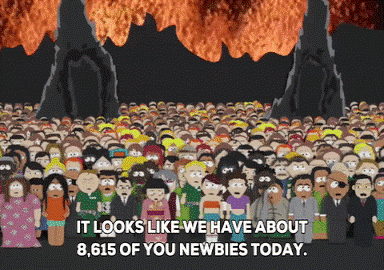
So if you’re lucky enough to be in the presence of someone who publishes books, try to avoid the above conversation, as tempting as it may be. Publishers are professionals, and they want to know that you are knowledgeable about the publishing process, including how to properly query a publisher. This includes knowing the submission guidelines the publisher has for your manuscript, as well as what their expectations are for the submission proc55555555565962666
It doesn’t matter if you are dealing with someone from a large publishing house or an independent publisher – you still need to present yourself as a proficient writer and expert who is serious about being published.
Let’s say you were looking for a job and while you were out doing something completely unrelated, you ran across a hiring manager for the company you want to work for. You know that the first impression is an important and lasting one. As a result, you wouldn’t say to them, “Hey there. I would like a job for your company, even though my resume isn’t complete and I don’t have a completed one on me. But since I have you in front of me now, I would like to tell you all of my qualifications.”
(While that approach may work one in a million times for the person who is extremely charismatic, it won’t work for the rest of us.)
When considering candidates for their company through the hiring process, that manager expects certain things. They want a completed resume showing your qualifications. They want you to actually go through the application, interview, and hiring process like everyone else. You have to go through the proper avenues, not take shortcuts.
It is the same for publishers. Deciding to invest in the expensive and risky process of publishing your book is not a fly-by-night decision, and the authors accepted to a publishing deal have shown that their work can potentially produce a greater return on the publisher’s initial investment. Publishers expect the authors querying them to have all of their ducks in a row and to present themselves to publishing houses with the same professionalism as when they go through the hiring process.
I didn’t understand the confusion authors felt regarding pitching their work or talking to a publisher until I was on this side of the “ink line”. I can honestly empathize with you. I have been there and experienced those same jitters in my stomach. In order to better serve you, I feel it necessary to educate you on how to make a lasting impression should you happen to meet a publisher face-to-face.
I understand your hunger – believe me, I do. After years of being rejected, then believing the process of getting published was too difficult or somehow rigged, my hunger began to turn into desperation. I was more focused on my frustration of not being accepted instead of on how to get over that obstacle, and there were times I made some doozy statements to publishers.
Yes, I completely understand the person who mistakenly conducts the conversation referenced earlier. You now have someone right in front of you that can solve your problem, right? It’s like God dropped a gift right in your lap, and now the opportunity is too great to pass up. You have to ask them to publish you, even if all you have is an idea.

So, even though you’re not sure what to say, you pitch them in a vague, “I’m just trying to feel out this publisher” type of way, only to wonder why the pitch did you no good. Here are some of the things you shouldn’t say if you have a publisher in front of you, and maybe you’ve found that you’ve said one or more. If you have, don’t beat yourself up. We all live, learn, and then we get better together. Until then, try as hard as you possibly can to avoid saying these things:
#1 “I’m working on a book” or “I’m thinking about writing a book…”
Honestly, saying this is a waste of your time and theirs. Either you’ve written your book or you haven’t – and publishers only work with completed books unless you’re an established author with a successfully selling title under your belt. If your book isn’t done, this is the opportunity to ask the publisher more about them and their company, not prattle along about a book you may or may not complete. Ask the publisher if their house is accepting submissions, what genres they are looking for, and where you can find more information on their submission process. While that may not put you in the forefront of the publisher’s mind, it will guarantee that they don’t immediately dismiss you and your work when you do submit it. Believe me, publishers remember that one person who approaches them with extreme unprofessionalism. Not only do you not want to be that person, but you also don’t want to be remembered for that reason.
#2 “I want you to write my book for me…” or “Can you help me finish my book?”
This echoes back to the previous list item. Publishers don’t write books or help you complete them – ghostwriters do. Now, there are publishing companies who have professional editors on deck who may make some corrections and ask for changes in the manuscript, but they do not write the book. That is your responsibility.
You should know the difference between the types of entities you are working with be they publishers, ghostwriters, or various types of editors. A publisher is in charge of making sure your book gets in print and on e-readers, while a ghostwriter will help you write your book and doesn’t take credit for it. Instead of asking the publisher to help you write your book, you could ask them if they know any respected ghostwriters that they could refer you to.
#3 “My book is almost done, but I want a publisher’s opinion prior to completing it.”
Publishers get this one so much that it had to be mentioned. I understand the logic behind this, even though it is not the correct thinking. Writing is scary, and the scariest aspect of it is believing you have worked so hard on something that just isn’t good. However, this is where beta-reads, critique circles, and focus groups come into play. Once again, publishers only deal with completed manuscripts. If publishers sat around reading and critiquing half-written manuscripts all day, they’d never have the time to do their real job, which is to publish completed manuscripts. Don’t ask a publisher to give their opinion to “see if it’s worth finishing”. Instead, ask someone who loves reading to peruse it and tell you what they think.
#4 “I have a really, really good idea for a book but the world just isn’t ready for something ‘so deep'”.
I was actually dumbfounded when someone said this to me once, and I proceeded to scream in my head, “Then WHY are you spending an hour trying to pitch a publisher on this book?!?”
The idea that the world won’t accept your idea or “isn’t ready for it” is a cop-out. First of all, your idea has already been done many times. I can guarantee you that truth. Maybe not quite the way you are executing it, but whatever you’re writing exists in a book somewhere in the world and you just haven’t read it. But someone else has. The old saying about nothing being new under the sun is true. The excuse that many scared writers, unfortunately, hide behind is that “the world just won’t get it”, all in an attempt to avoid the real work it takes to get a publisher to accept their manuscript for publication. Some see this phrase as a “teaser” to get the publisher hooked, but I assure you, it doesn’t work. It reeks of pretentiousness and just annoys publishers in general.
Despite some of the negatives you may hear about publishers, they truly respect the authors who put in the blood, sweat, and tears it takes to get through the publishing process. Why? Because they know how hard it is! And they also know that it’s the strongest of the strong, the most resilient and courageous, the ones willing to network, research, and battle through a sea of “No’s” that manage to get their work in front of the right people. The person who smugly says they haven’t tried because the “world can’t handle what they wrote”, gets left behind and is quickly forgotten, all so that publishers can dedicate their time and energy to the ones who fearlessly share their unique works with the world.
#5 “I don’t know why I haven’t put out my book yet – it doesn’t look that hard.”

What’s the best way to NOT get published? Insult the publisher, the writing process, and the publishing process. 99% of writers have no clue about the thousands of hours invested, the sleepless nights, and the stress that goes into creating a published work. It may not look hard to you, but once you dive in and try it for yourself, you’ll see the amount of dedication, discipline, and work hours that have to be put into it.
That’s why so many new authors crash and burn on their first publishing attempt, especially when it’s self-publishing. Mainly because they underestimate the huge amount of work it takes. You have to love this process in order to get through it.
When it comes to publishers, not only do we enjoy what we do, but we have done it so often and for so long that sometimes it looks easy to outsiders. However, just because it “seems” easy to publish a book, that doesn’t mean it is. And the worst thing you could say to a publisher or editor is, “Well, it doesn’t seem that hard, so I don’t know what’s holding me back from doing it.”
Perhaps the rise of less reputable publishing companies has given the masses a more lax view of publishers. Maybe it’s just that people don’t know better. I will say this, though: outside of expos and book conventions, how often will you find yourself in a one-on-one interaction with a real publisher? Not many times, to be truthful. So when you do, make it count!
Here are some tips on the best ways to achieve a positive interaction with a publisher or editor by employing these tactics:
- Keep the conversation centered around them, not you. Instead of talking about your book, ask them about their company, their mission and vision, and why they are passionate about the genres they chose to publish. Ask them if they have a website where you can do more research or sign up for their newsletter.
- Find out more about their submission guidelines. Let them know you are researching publishing companies to submit your work and ask where you can find out more about their querying and submission process. This lets the publisher know you are serious about being published and are willing to take the necessary steps to complete the process in a professional manner.
- Don’t pitch unless you are asked. If you happen to get asked that golden question, “What is your book about?”, have a 30-second elevator pitch ready. If it’s a non-fiction book, you should be able to talk about your book’s message, goal, and what problems it addresses and solves in the amount of time a three-floor elevator ride takes with a publisher. If it’s a fiction novel, you shouldn’t be telling the story from beginning to end – you only have 30 seconds, so hook them in with your first sentence, then give a very short, exciting synopsis of the plot, including the conflict your protagonist will face.
- Don’t leave without their card. I can’t stress this enough. Whether you are lucky enough to have a one-minute conversation with them or get ten minutes to talk with them, make sure to ask if they have a business card and get one for yourself! While you don’t want to call a publisher directly, their card will usually have the e-mail address where submissions need to be sent, along with a website address for their publishing house – a website that will provide valuable insider information on how to possibly get accepted by them.
Most publishers and editors are based out of New York City, but more publishing houses now exist across the nation, including in southern California, Washington, Florida, and even mid-west states like Ohio and Nebraska. The odds of you coming face-to-face with a publisher may be slim depending on where you live, but it’s not impossible. At your next networking event, one of those people in the room could be a publisher, and you don’t want to waste your opportunity to make a lasting first impression and bridge a professional relationship with someone who can be instrumental in getting your book published.
What do you think? Have you ever had a face-to-face interaction with a publisher or editor? How did it go and what did you say?
Are you a publisher with additional tips to add on what readers should not say when they meet you? Share your responses and experiences with us, and help others get better at networking.
Good luck, and have fun networking!


